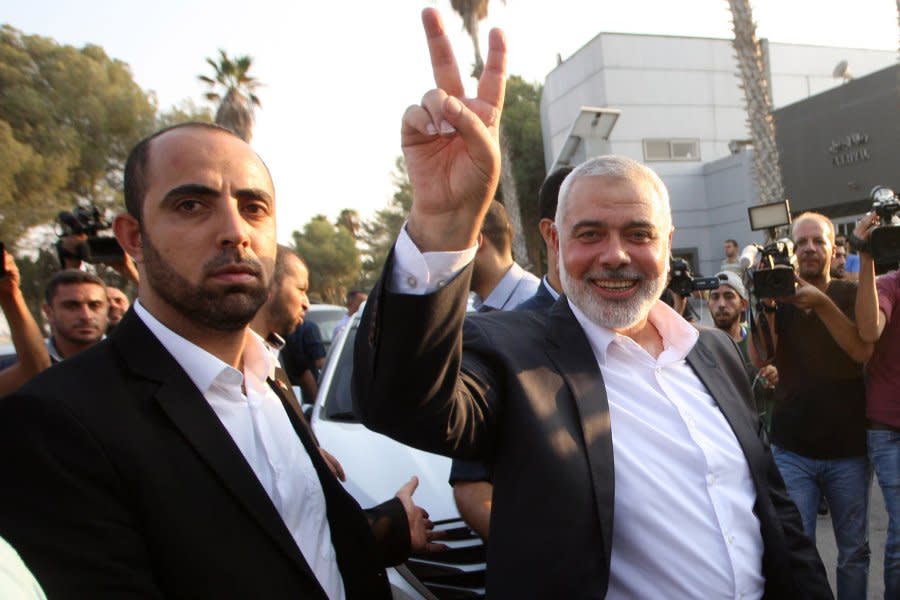Haniyeh touts Hamas’ diplomacy efforts in Eid message

- Oops!Something went wrong.Please try again later.
June 16 (UPI) -- Ismail Haniyeh, the chairman of the political bureau of the Palestinian militia Hamas, touted Hamas' diplomatic efforts in a message celebrating Eid al-Adha.
Haniyeh used much of his speech to apparently posture Hamas as the more agreeable party in Israel's war in Gaza, having exhibited "great seriousness and great flexibility" to reach a ceasefire agreement.
The Hamas leader pointed to its May 6 approval of a ceasefire proposal mediated by Egypt and Qatar, which outlined a three-phase plan to de-escalate the ongoing conflict. But Israeli Prime Minister Benjamin Netanyahu met the proposal with conditions.
Israel has said it would only accept a permanent ceasefire with the elimination of Hamas' military capabilities, without Israel giving up its own military capabilities. Israel and its allies consider Hamas a terrorist organization that does not have the right to self-defense.
Haniyeh also pointed to Hamas expressing positivity toward U.S. President Joe Biden's speech on May 31, 2024, which outlined a three-phase Israeli proposal for a ceasefire in Gaza. At the time, Hamas said it was willing to engage constructively on that proposal.
Biden's proposal called for an immediate end to hostilities and detailed steps for a lasting peace, including the release of hostages and a major reconstruction plan for Gaza, but Israel again said the war would not end until Hamas's military capabilities were eliminated.
And Haniyeh pointed to its welcoming of a resolution passed by the United Nations' Security Council, which was backed by 14 nations with Russia abstaining. In it, the security council called for a ceasefire in line with Biden's proposal for an immediate ceasefire, permanent end to hostilities and the reconstruction of Gaza.
Hamas' welcoming of the resolution was somewhat surprising as it also called for the unification of Gaza, ruled by Hamas, and the Palestinian Authority-ruled West Bank under the Palestinian Authority, a rival political group, as part of a two-state solution. It did not specify the creation of a physical land bridge between Gaza and the West Bank.
"The occupation and its allies did not respond to this flexibility and continued their maneuvers and attempts to circumvent and deceive through proposals and ideas aimed at obtaining prisoners and returning to resume the war of extermination again," Haniyeh said.
"They launched media and incitement campaigns to pressure the movement and the resistance factions to agree to their plans, but we are still and will remain steadfast in our positions that places the interests, security and protection of our people above all else."
In his speech, he also said "the solution will be achieved through negotiations that lead to a comprehensive agreement, no matter how much the enemy evades or obstructs reaching it."

